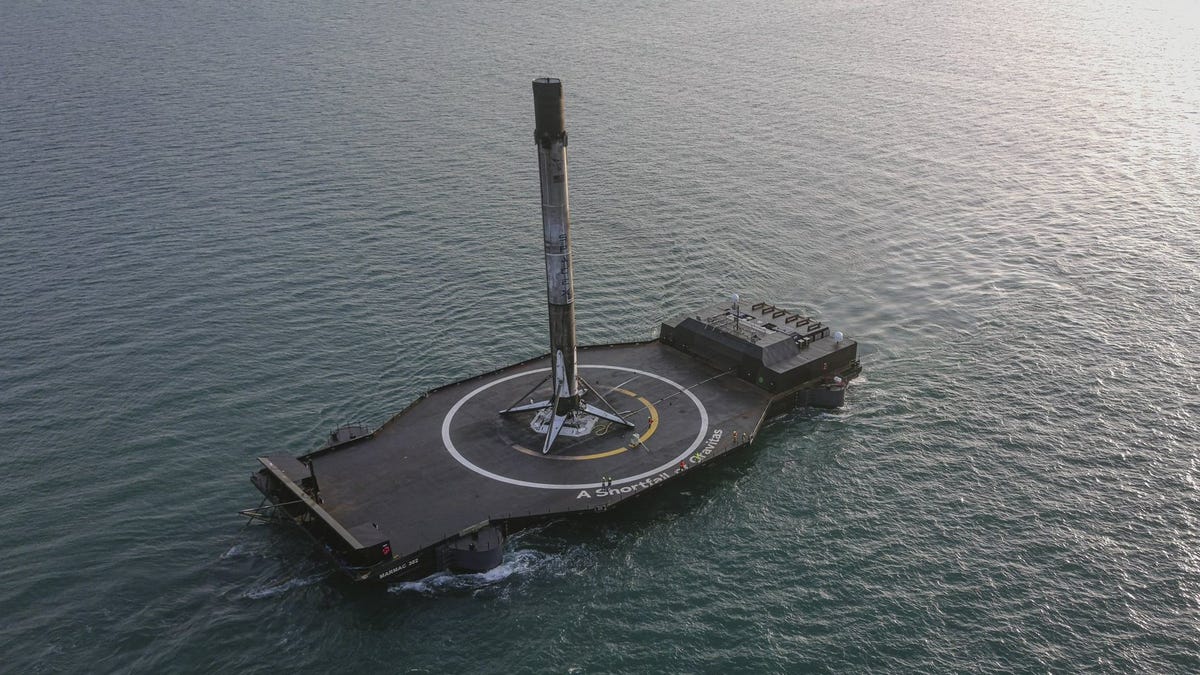SpaceX shares ethereal video of Falcon 9 rocket touchdown in the dark
After escorting an ISS Cargo Dragon into space, the rocket came in for an atmospheric droneship landing.
Spaceflight is fiery, exciting and loud. Sometimes, it's simply beautiful. SpaceX shared a short video of a Falcon 9 rocket booster returning to Earth and landing on a ship. That's business as usual for the company, but this particular touchdown looked ethereal thanks to cloudy conditions and the dark of night.
"Landing in the dark through clouds," SpaceX tweeted on Tuesday. That phrase should be the title of SpaceX's poetry chapbook if it ever decides to get into the literature business.
The footage shows a look downward along the rocket as it nears the water, extends its landing legs and comes in for a picture-perfect touchdown in the middle of a ship named A Shortfall of Gravitas, which was waiting in the Atlantic Ocean.
SpaceX also shared a scenic view of the ship returning to port after its first mission.
A Shortfall of Gravitas returns to port with Falcon 9 after its first mission pic.twitter.com/PPFQEpFo1Z
— SpaceX (@SpaceX) August 31, 2021
The Falcon 9 was used to launch an uncrewed Cargo Dragon spacecraft to the International Space Station over the weekend on the CRS-23 mission to deliver supplies and experiments to the orbiting outpost for NASA. Dragon successfully docked with the ISS.
Now that SpaceX is regularly launching crewed and uncrewed missions to orbit and routinely collecting rocket boosters for reuse, it's easy to forget how remarkable the entire operation is. Watching the Falcon 9 come back through a mist of clouds for a cinematic landing is a reminder that spaceflight -- and all it takes to make it happen -- is still awe-inspiring.
Follow CNET's 2021 Space Calendar to stay up to date with all the latest space news this year. You can even add it to your own Google Calendar.


